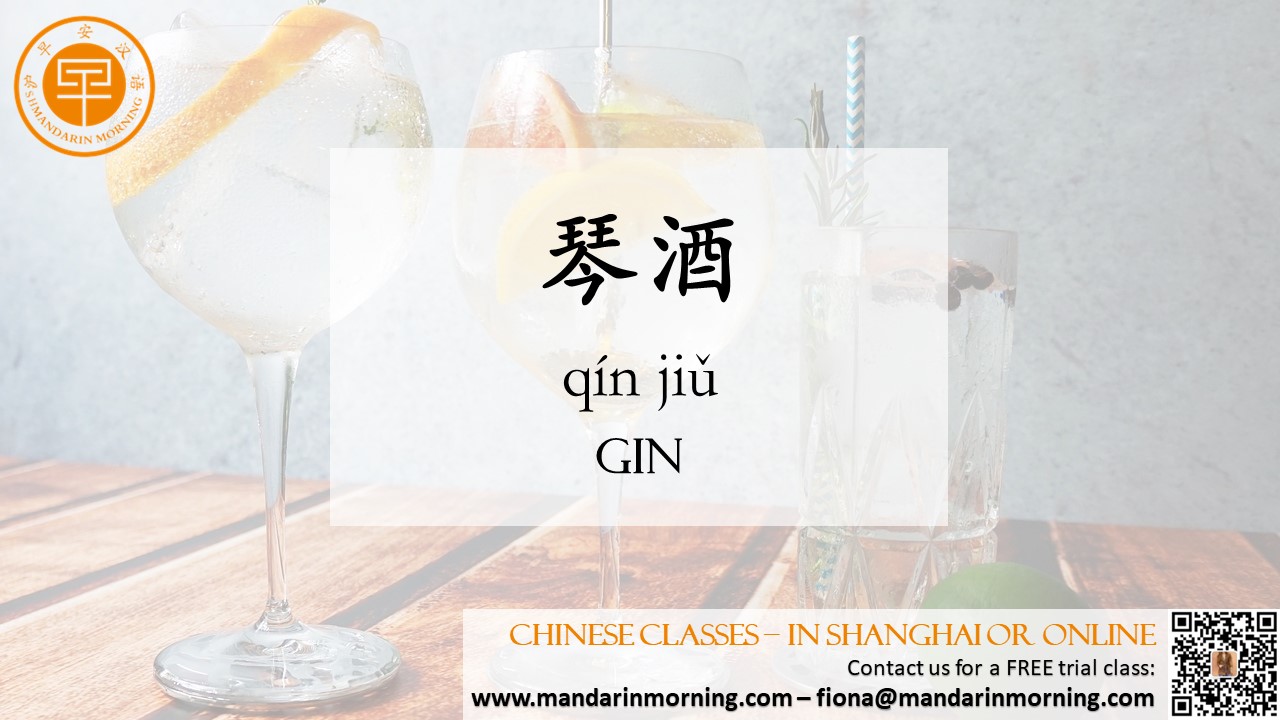| While raising a glass of your favorite spirits, why not embark on a cultural and linguistic journey by exploring the Chinese translations for five popular types of liquor? Impress your friends with your newfound knowledge and raise a glass with a confident “干杯” (gān bēi; cheers) when toasting!  Gin 琴酒 Let’s kick off with the beloved classic, gin, also known as “mother’s milk” or “mother’s ruin.” In Chinese, gin is commonly referred to as 琴酒 (qín jiǔ). The character 琴 (qín) phonetically resembles the sound “gin,” while 酒 (jiǔ) translates to “alcohol” or “wine.” Another Chinese translation for “gin” is 杜松子酒 (dù sōng zǐ jiǔ). 杜松子 (dù sōng zǐ) represents “juniper berry,” the primary ingredient that defines gin. This delightful spirit is often paired with tonic water, making it a staple in classic cocktails like the martini. Whiskey 威士忌 The Chinese word for “whiskey” is 威士忌 (wēi shì jì), which closely resembles the sound of its English counterpart. As the Chinese market for whiskey continues to expand, more varieties and brands are being introduced to cater to consumers’ evolving tastes. Brandy 白兰地 Brandy, known as 白兰地 (bái lán dì) in Chinese, is a loanword derived from the English term “brandy.” Let’s delve into this intriguing Chinese term. Unlike white or red wines, brandy can be crafted from various fruits such as apples, apricots, plums, pears, and cherries. To create the best brandy, distillers must carefully select fruits at the peak of ripeness. This attention to detail and craftsmanship results in the exquisite flavors found in each sip of brandy. Vodka 伏特加 Vodka, renowned for its neutral character with no distinct aroma, color, or taste, is a highly popular spirit used as a base for numerous cocktails. In Chinese, vodka is referred to as 伏特加 (fú tè jiā). The literal translation of 伏特加 (fú tè jiā) as “crouch special plus” may not immediately make sense because it is a loanword derived from the English term “vodka.” Traditionally known as the “water of life” (生命之水; shēng mìng zhī shuǐ) and typically consumed neat, vodka has evolved to be enjoyed in various cocktails and mixed drinks. Its neutral nature allows other flavors to shine, making it a favorite choice among cocktail enthusiasts. Tequila 龙舌兰 For those who appreciate the unique taste of tequila, it’s fascinating to discover that it is called 龙舌兰 (lóng shé lán) in Chinese. Its Chinese term literally translates to “dragon tongue orchid,” evoking imagery of vibrancy and liveliness that is often associated with tequila! Tequila, crafted from the blue agave plant, has a rich cultural heritage deeply rooted in Mexican traditions. Its distinct flavor profile and versatility have made it a beloved spirit enjoyed worldwide. So, let the Chinese name 龙舌兰 (lóng shé lán) remind you of the spirited and lively nature of this beloved drink. |